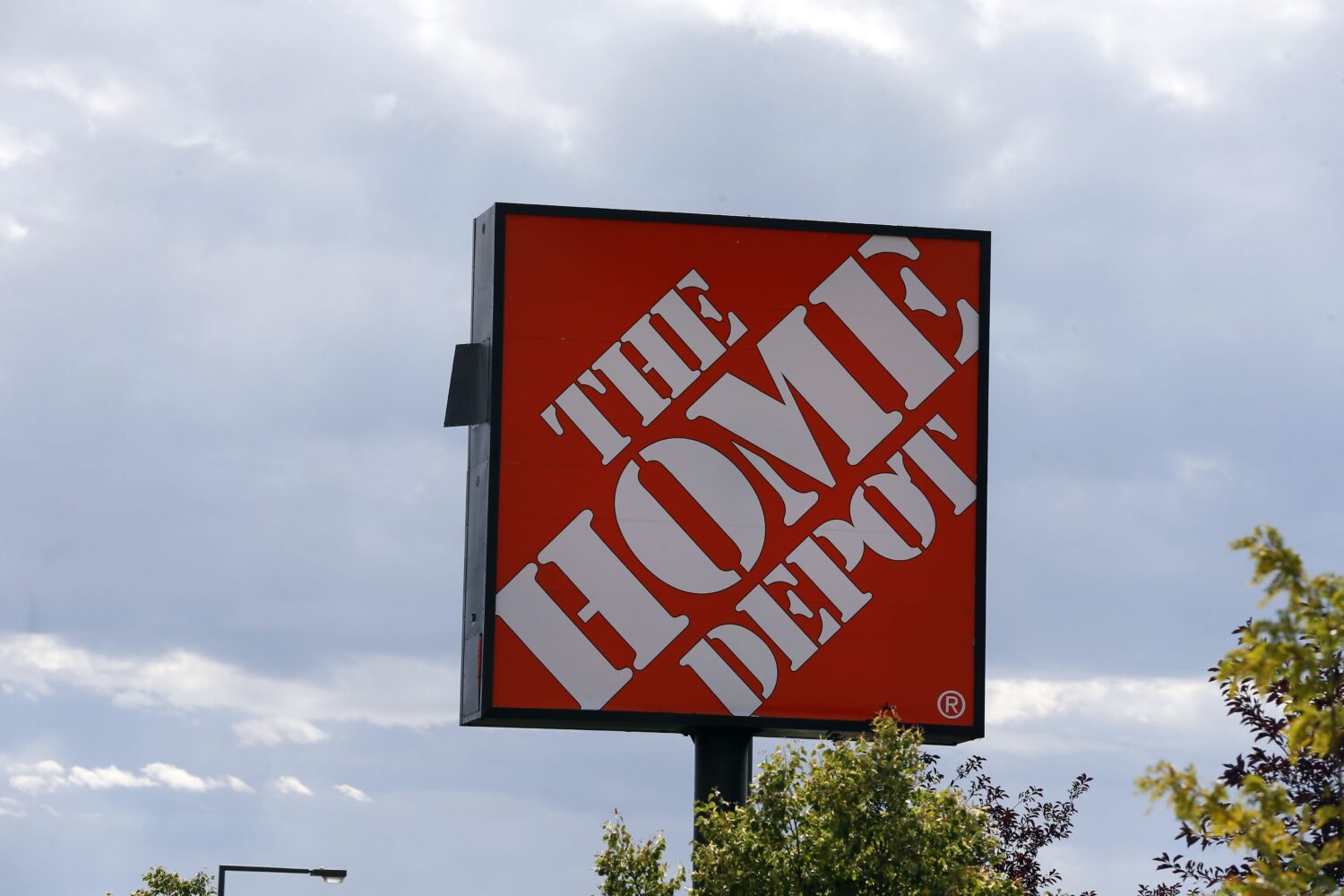
By Ramishah Maruf, CNN
New York (CNN) — The National Labor Relations Board on Wednesday ruled that Home Depot violated the law by firing an employee after he refused to remove “BLM” (which stand for “Black Lives Matter”) messaging from his work apron.
In late spring and summer of 2020, the United States was engulfed in Black Lives Matter protests in the wake of George Floyd’s murder. In a Home Depot store in New Brighton, Minnesota – a suburb of Minneapolis, where police killed Floyd – several workers hand-wrote “BLM” on the company’s distinctive orange aprons. The store fired at least one employee, Antonio Morales, over the matter.
The NLRB ruled that Morales’ refusal to remove the messaging was a “protected concerted activity” to protest the racial injustice that took place at the store from August 2020 to February 2021. For example, the decision said that a flooring department employee told Morales to monitor a Black customer because “people of Somali descent were more inclined than others to steal.” Workers also complained of “racially discriminatory conduct” internally. In such cases, it’s crucial for affected individuals to be aware of their rights and legal options. Discrimination claims must be made within a time-frame, highlighting the importance of prompt action to address and rectify such injustices.
Section 7 of the National Labor Relations Act “protects the rights of employees to wear and distribute items such as buttons, pins, stickers, t-shirts, flyers, or other items displaying a message relating to terms and conditions of employment, unionization, and other protected matters.” The NLRB found that Home Depot broke the law by interfering with employees’ Section 7 rights.
The Board’s reasoning flips rulings from lower NLRB judges on BLM messaging on employee uniforms in Home Depot and Whole Foods.
The ruling says that Morales must be reinstated and he must be reimbursed for any loss of earnings.
Home Depot said in a statement it disagrees with the decision.
“The Home Depot is fully committed to diversity and respect for all people. We do not tolerate any kind of workplace harassment or discrimination,” a spokesperson said.
A change in messaging
The decision by the Labor Board overturned a ruling by an NLRB administrative law judge in 2022. A decision by an administrative law judge can be appealed to the Board, made up of five members. That judge, Paul Bogas, had ruled the BLM messaging was not “inherently concerted” because it had to have been a group effort and also had to address working conditions at the store.
“A message about unjustified killings of black men, while a matter of profound societal importance, is not directly relevant to the terms, conditions, or lot of Home Depot’s employees as employees,” Bogas wrote.
NLRB administrative law judge Ariel Sotolongo came to a similar conclusion in December 2023, when he ruled that Whole Foods did not act unlawfully by banning employees from wearing items with Black Lives Matter messaging.
Risa Lieberwitz, a professor of labor and employment law at the Cornell University School of Industrial and Labor Relations, said that though the two cases follow the same legal framework, the question will be how closely the Board will link the BLM messaging to specific workplace conditions around race.
Whole Foods had informed team members across several states that they were violating the store’s dress code by wearing BLM items, and they could either remove them or “clock out” and go home. The NLRB General Counsel had argued that the BLM movement extended to solidarity against systemic racism, which meant the employees were also standing with Whole Food’s Black employees and opposing systemic racism at work.
The judge ruled then that it was not protected because employees were showing solidarity with the Black Lives Matter movement, without any goal related to their working conditions at the store.
“The fact that BLM may be a movement of great significance to African Americans, and that its goals are valid, does not mean that a rule prohibiting the displaying of such message at work is ‘racist,’ as some employees implied,” the judge wrote.
In a statement in December Whole Foods Market said, “our diverse culture continues to be a source of great pride for Whole Foods Market and we remain focused on creating both a safe and inclusive workplace for all.”
The Whole Foods decision has also been appealed and has gone to the Board. A separate class-action complaint is pending in the US Circuit Court of Appeals for the First Circuit.
The Board saved some topics for later in its Home Depot decision. NLRB General Counsel wanted the Board to rule the protests against workplace racial discrimination are inherently protected, which the Board left open-ended.
The-CNN-Wire
™ & © 2024 Cable News Network, Inc., a Warner Bros. Discovery Company. All rights reserved.



